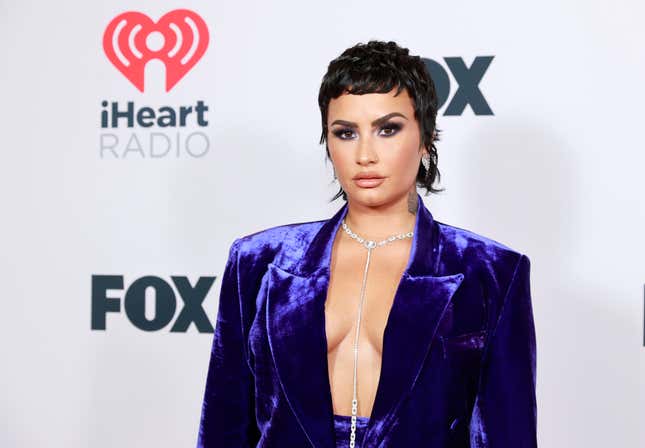Demi Lovato Recalls Throwing Up Blood & Being Told She Wasn’t ‘Sick Enough’ For Treatment
The singer said that, when she was a teen star, her management once barricaded her in a hotel room without phones and regularly monitored her bank statements.
CelebritiesEntertainment

Demi Lovato is sharing more details of her past traumas, following the release of “29,” a single from her new album, HOLY FVCK, in which she reflects angrily on her relationship with ex-boyfriend Wilmer Valderrama (who is 12 years older than her). In a video appearance on the podcast Call Her Daddy on Thursday, Lovato spoke at length about how a controlling person on her Disney management team worsened her eating disorder and drove her to drug relapse as a teen.
The former Disney star, who turned 30 just a few days ago, has struggled with drug and alcohol addiction over the years, and most recently left rehab in December 2021. While Lovato admits that these issues preceded her time on the network—she began experimenting with drugs at age 12—she said that they were exacerbated by her controlling management team when she was a Disney star. Lovato described extreme pressure to behave a certain way in the public eye during that time in her life. “There were expectations of you to be a role model, because all of a sudden you’re thrust into that position whether you want it or not,” she told CHD host Alexandra Cooper. Lovato and her co-stars at the time—including Miley Cyrus, Selena Gomez, and the Jonas Brothers—lived “in fear” of a website that posted “all scandalous things happening to Disney actors” in an effort to taint their good boy/good girl branding.
-

-

-

-

-

-

-

-

-

-

-

-

-

-

-

-

-

-

-

-

-

-

-

-

-

-

-

-

-

-

-

-

-

-

-

-

-

-

-

-








































